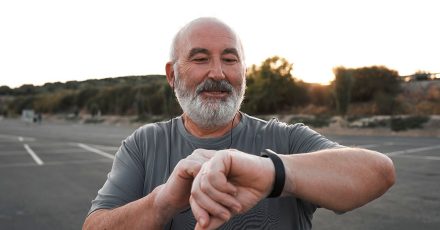The NHS will pilot an AI-driven “one-day diagnostics” pathway for prostate cancer that could cut some men’s waiting times by up to a month. Funded by NHS England, the scheme uses artificial intelligence to analyse MRI scans and highlight suspicious lesions in minutes.
The pilot will run at up to 15 NHS hospitals, starting at Leeds Teaching Hospitals NHS Trust early next year. Leeds will trial a rapid-diagnosis pathway offering all investigations in one day, with about 100 men expected to benefit. If the AI flags a scan as high risk, it will be escalated immediately to a radiologist for priority review and the patient can be booked in for a same-day biopsy. That approach could allow clinicians to give an all-clear the same day or confirm a diagnosis within a few days after review.
England’s national cancer director said the faster pathway could spare men “weeks of worry and uncertainty” and supports wider NHS and government efforts to speed cancer diagnosis. If successful and scaled across the NHS, the service could lead to thousands of earlier diagnoses and treatments.
Current best-practice guidance recommends MRI and biopsy within seven days after an urgent GP referral for suspected prostate cancer, but waits can be longer in areas with limited radiology capacity. The AI system could accelerate assessments and enable some AI-assisted MRI scanning to be delivered in community diagnostic centres, bringing care closer to patients.
The Leeds trial will use Pi, developed by Lucida Medical, aiming to substantially increase the number of people diagnosed or ruled out within 28 days. In other sites the tool will be applied to about 10,000 scans to support radiologist reporting and decision-making, including recommendations on active surveillance, biopsy, and treatment planning. Research cited by the programme suggests the tool can identify around 95% of cancers.
Prostate cancer is the most common cancer in UK men, accounting for over a quarter of male cancer diagnoses. Each year in England there are more than 56,000 new cases and, on average, over 12,000 deaths from prostate cancer across the UK.
Professor Peter Johnson, NHS National Clinical Director for Cancer, said the NHS is excited about AI’s potential to speed diagnosis: quicker diagnosis allows earlier treatment and better chances of success, he said, adding that combining new technology with a rapid pathway will help clinicians give patients faster reassurance or confirm a cancer diagnosis.
Dr Oliver Hulson, consultant radiologist at Leeds Teaching Hospitals and lead for the Leeds trial, said clinicians are always seeking faster, better cancer care. The AI-assisted MRI screening introduces a rapid diagnostic approach to fast-track patients who need further tests so scans and biopsy can be completed in one day at the Leeds Cancer Centre, potentially enabling faster treatment and improved outcomes.
The article includes the experience of Allan Morton, 66, who ignored symptoms including blood in his urine for about three years. After his wife noticed dark urine in February 2023 he saw a GP, had an MRI two days later, a CT scan the next day, and a biopsy two weeks later; he was diagnosed with stage 3B prostate cancer within days. He received hormone therapy and radiotherapy and is now off medication, monitored with regular PSA tests that have stabilised. Morton said lengthy waits and false positives can cause unnecessary stress, and a reliable same-day diagnostic pathway could save time, lives and relationships.
Health Secretary Wes Streeting said prostate cancer causes devastating harm and long waits for results and treatment add needless distress. He called the AI approach a way to modernise the NHS, boost productivity, reduce waiting, and enable faster treatment starts to save lives.
Prostate Cancer UK’s Assistant Director of Health Improvement, Amy Rylance, welcomed the trial as a step toward faster, fairer access to accurate diagnosis and appropriate treatment, noting MRI and targeted biopsies have already improved safety and accuracy, and AI could further reduce anxiety and relieve NHS pressure.
Lucy Davies, Lucida Medical’s VP of Clinical and NHS Innovation Accelerator Fellow, said the partnership with Leeds and NHS England aims to show Pi™ can help doctors rapidly identify men with prostate cancer, support a one-stop diagnostic service, and lead to more efficient care, better outcomes and cost savings.
The project is one of seven innovative pilots supported by a £14 million investment to improve early cancer detection, funded through the NHS Cancer Programme Innovation Open Call.



